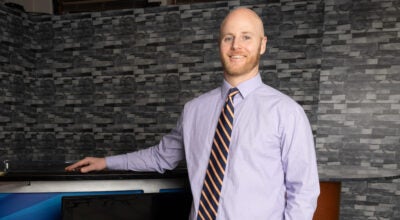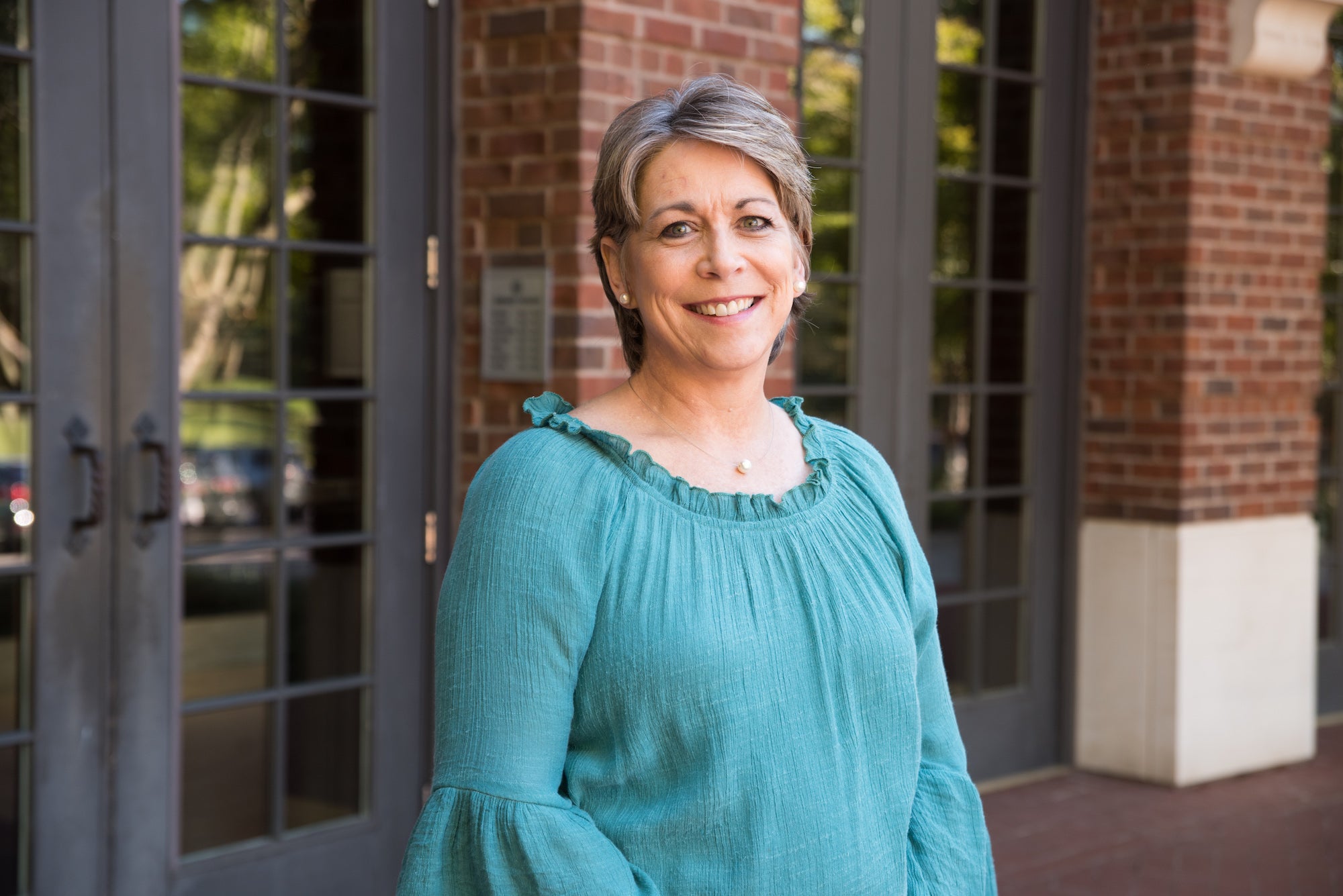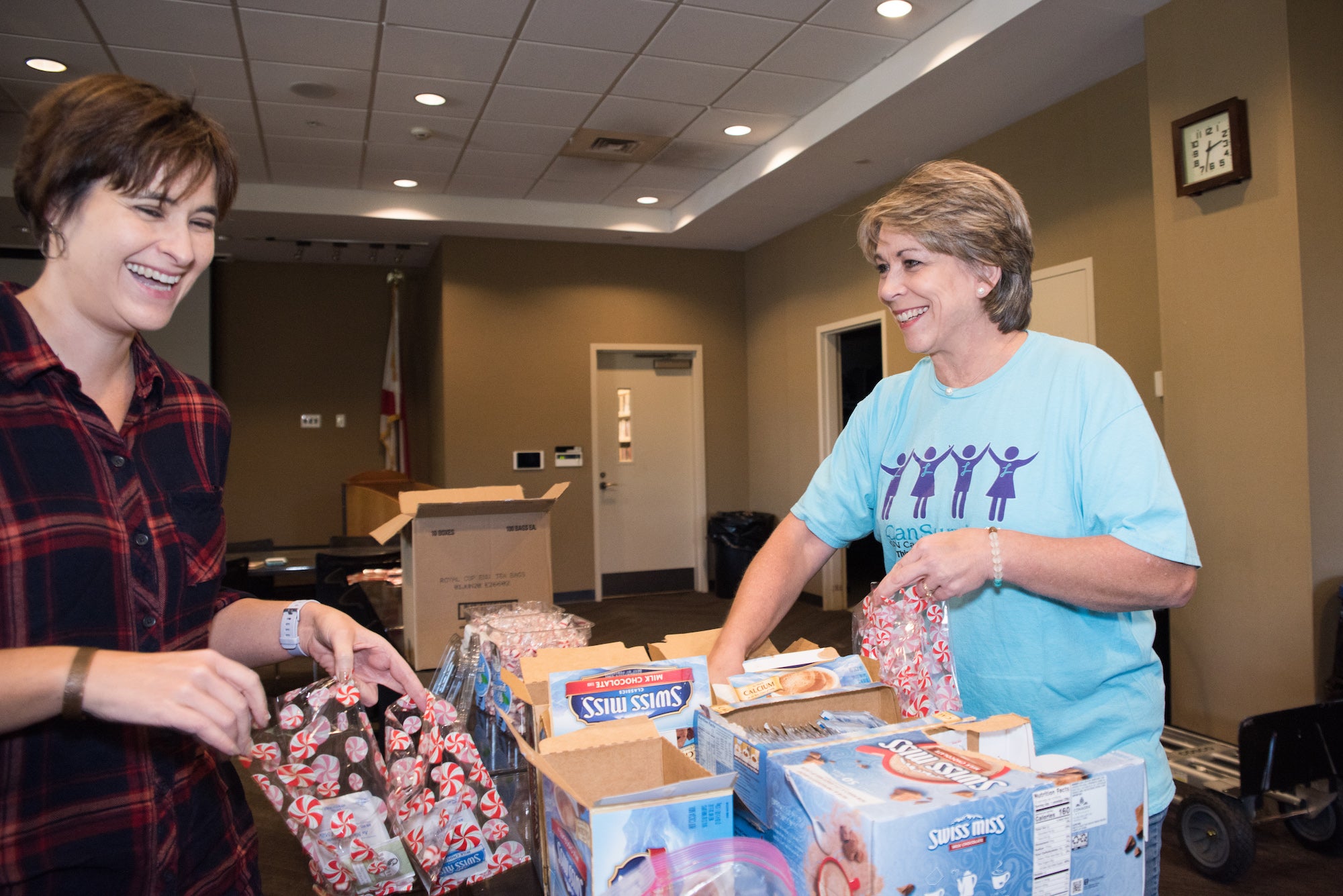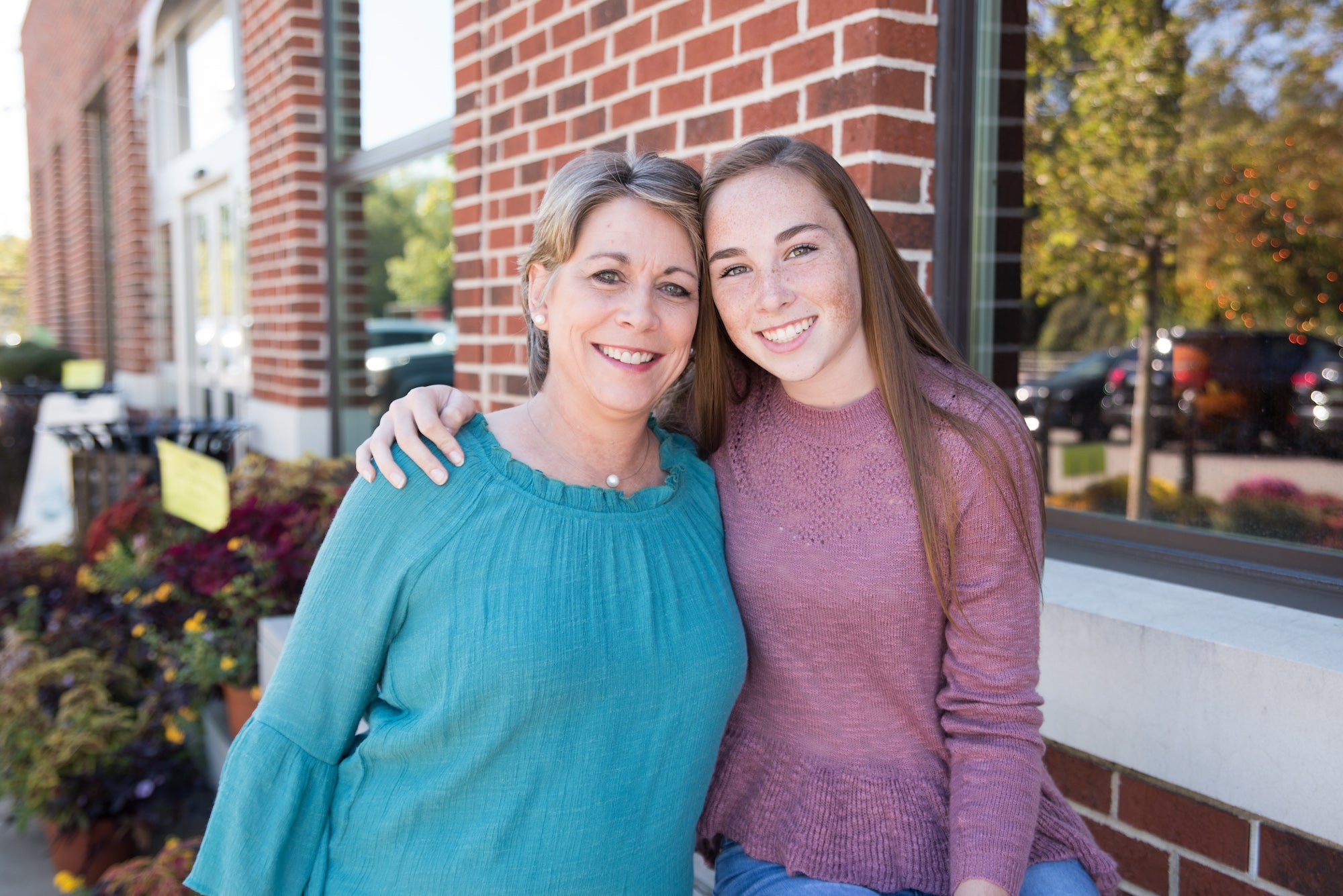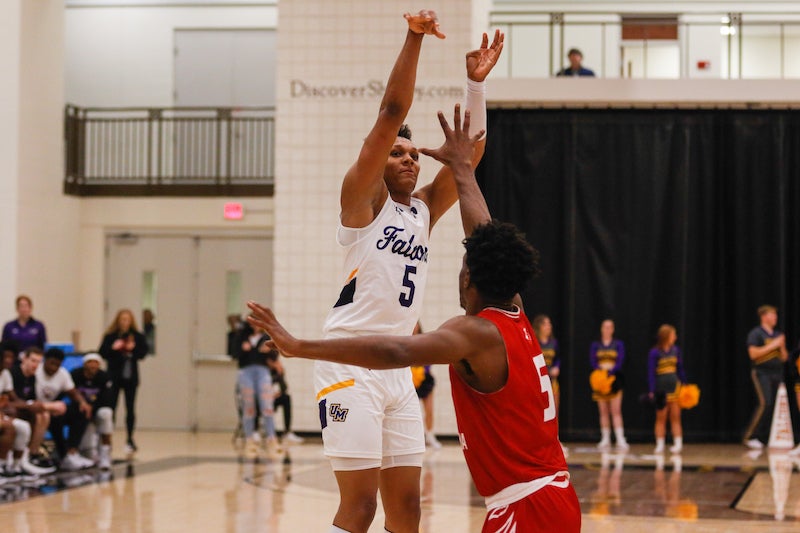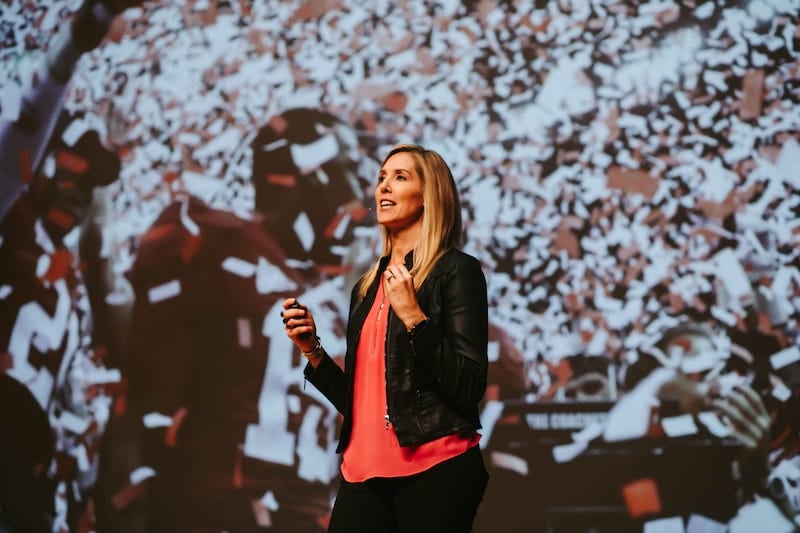PROFILE: Tammy Anderson: Cancer Survivor-Turned-Advocate
Published 4:12 pm Monday, March 11, 2019
By BRIANA HARRIS
Photos by Keith McCoy
Tammy Anderson thought she’d be strong enough to handle the onslaught of emotions she might feel when she started 18 weeks of ovarian cancer treatments at UAB. But during a tour of the hospital she broke down crying.
“I completely lost it,” she says. “I boo-hooed right then and there. I saw all the women in there sitting in the exact same chairs that my mom had sat in, and I thought, ‘I’m way too young for this.’ All of the women were my mom’s age or older. I had a daughter in middle school and a son starting his senior year.” But it was also her age that gave her hope too. “I’m younger, so maybe my body can fight it a little better,” she thought to herself.
Prior to her ovarian cancer diagnosis in 2014, Anderson was misdiagnosed. She was told she had gastrointestinal issues, and then a colonoscopy revealed a tumor growing into her colon. Her diagnosis was colon cancer, but that didn’t make sense to her given her history with cancer. Her mother had died of ovarian cancer, and her father had died of colon and bladder cancer.
“When my dad was going through it, I did a lot of research, and that knowledge helped me a lot,” she says. “I pushed for more testing, and the colon cancer test came back negative.” Then, she told them to test her for ovarian cancer. A cancer antigen 125 (CA 125) test, which measures the amount of the protein CA 125 in the blood, reveals 35 units per milliliter in healthy adults. But her results came back at more than 1,100 units per milliliter. It was, in Anderson’s words, “astronomical.” Her Stage 3 ovarian cancer had spread to her colon, lymph nodes and ovaries.
After five months of treatments, though, she’s been in remission ever since. But that doesn’t stop her from thinking about and talking about ovarian cancer. “I often tell people that they have to be proactive about their health,” she says. “Educate yourself. Sometimes you have to ask more questions and push for additional testing.”
A road traveled before
As it turns out, Anderson’s oncologist was the same doctor her mom had seen years earlier. When it was her own turn to go through the process, she often reflected back on her mother’s experience. Anderson had walked through it with her mom when her son was 6 years old and she was pregnant with her daughter, watching as her mom underwent treatments—many of them experimental—every six months. After fighting the disease for a total of four years and nine months, her mom died in 2007.
During her mother’s battle, Anderson really didn’t want to know much about the cancer that threatened her mom’s life. Doctors asked her and her sister if they wanted to do genetic testing to find out if they carried a BRCA gene that predisposed them to cancer, but they both declined. Years later when she started to experience certain symptoms, she was unaware that cancer could be the cause. “With being pregnant and having a young child, I just didn’t want to know,” she says. “The recommendation if we had the gene was a full hysterectomy.”
Some time later, her results came back normal from a CA 125 test. Then five years after her mom’s death, she tried to have the test performed again but was told it was no longer administered unless a patient had symptoms of ovarian cancer. “If anything, my regret is that if I’d done the BRCA testing then that would’ve given them their reason to do the CA 125 test,” Anderson says. It wasn’t until her own diagnosis that she had the BRCA test and then found out she is a carrier of a genetic mutation.
Keeping the faith
When her own diagnosis came, it had been a while since Anderson’s last confession at her church, Our Lady of the Valley, but she felt compelled to go. “Afterward, I was at peace. I could feel that people had been praying for me and I really felt God’s arms around me, holding me and lifting me up,” she says.
In the past she had taught Sunday School classes, but it wasn’t until her cancer diagnosis that she says she drew closer to God. While off work, she read the Bible and studied scriptures. When she wasn’t able to go to church, church members came to her home to serve her communion or to pray with her. The Serenity Prayer became her go-to words of comfort. “God grant me the serenity to accept the things I cannot change,” its most well known verse reads, “courage to change the things I can, and wisdom to know the difference.”
But still, Anderson bargained with God—promising that when she made it through she would give back and help others. This was her spiritual awakening, she’ll tell you. “I couldn’t control my cancer, but I could control how I was going to affect others,” she says. “I decided that I could make a positive impact and help others.”
One of her first acts of giving back was the Field of Teal baseball tournament that was started at Pelham High School in 2015 by former PHS baseball coach Jeff Mauldin, a friend of her family. Now that Mauldin has moved on to become the coach of the Hewitt-Trussville team, Anderson and her husband, Sean, head baseball coach and P.E. teacher at PHS, keep the fundraiser going, with the funds they raise going to the Laura Crandall Brown Foundation, a nonprofit focused on gynecologic cancers.
Although Anderson says she doesn’t consider herself to be a good public speaker, she participates in speaking engagements. For the past couple of years, she has gone before the Pelham City Council to have the month of September named Gynecologic Cancer Awareness Month as a part of her mission to educate the public about the symptoms of ovarian cancer. She’s also helped other women diagnosed with cancer as a part of the Woman to Woman program at UAB, assisted with donation drives to help families with the financial hardships that cancer may bring, and volunteered at events hosted by the Laura Crandall Brown Foundation.
Her saving grace
Anderson’s onslaught of tears didn’t end on her first day of treatment. The woman who once thought that she could handle everything on her own was now crying all the time. More than once she was asked to consider joining a support group, but she consistently declined. “I had been a caregiver for my mom and my dad, and I thought that I was strong and could handle it,” she says.
But one day she got a call saying that she’d won a drawing for tickets to see a comedy show hosted by the Laura Crandall Brown Foundation. It was that night that she met members of the CanSurvive support group and started going to meetings. Later Anderson found out that there was never a drawing to see a comedy show – she was just being given a little push in the right direction.
“For me, it’s been invaluable,” she says. “It’s a place for social time. No one is sitting around wallowing the entire time like what you see on TV. We would do fun activities like painting, belly dancing and other different outings. I’ve gotten to do a lot of cool and fun things that I otherwise would’ve never done.”
Through the support group she found Cheryl Bourn, a 12-year Stage 3 ovarian cancer survivor. Anderson credits Bourn with teaching her how to accept help from others. “She really took me under her wing, and I needed that around that time,” Anderson says.
“When she came to the support group, I could tell that she was on edge and worried,” Bourn says. “For her to meet someone who had done well in the late stages of cancer, that was really helpful for her. She was facing her own mortality and she worried about how she’d handle treatment.”
Bourn gave Anderson tips about how to handle the side effects of treatment, what she should be talking to her doctor about and how to cope with her emotions. “Just being around someone who’s been through it is comforting,” Bourn says. “And sometimes the advice was just to find humor in every day.”
But according to Bourn, the most important takeaway from the CanSurvive support group is realizing you can keep living, even with the diagnosis of cancer. Although Anderson was learning how to cope, her emotions were still triggered when talking about her daughter, who is now a 16-year-old Pelham High School student. “I could talk about my husband and my son, but every time I got to my daughter I could never get it out,” she says.
Anderson worries that her daughter might also be a carrier of the BRCA gene and is helping raise money for research efforts to find an early detection test for ovarian cancer. As she knows full well, if the disease can be detected earlier, it can be treated before spreading to other organs. But despite the hardships and uncertainties that remain, she’s optimistic. “I’ve tried to find the good in it along the way,” she says. “I’ve met so many wonderful people, and I’ve done things that I never would’ve gotten to do.”
More Profile
